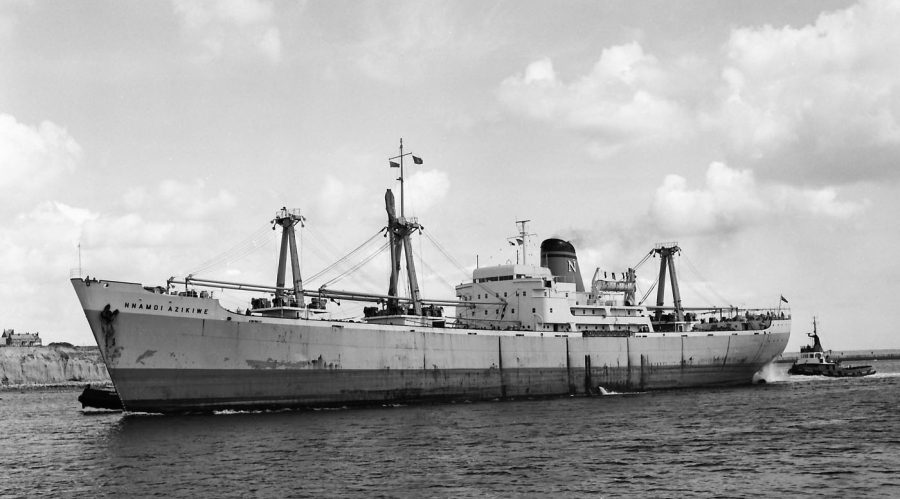
Nnamdi_Azikiwe’s Ship Dec. 1975
To begin with, immigration, by all standards, has its advantages and disadvantages. Interestingly, sometimes the downside may outnumber the benefits by far. To some people, it might become a thorn in the flesh depending on personal experience—migration ought to be fresh air and the beginning of a new life in a completely new environment. From my own experience and that of many Africans, however, migration is not without torments and constant psychological torture. Most notably, when people recall with nostalgia, the good old days in their home country.



THE BAD AND THE UGLY OF A DICTATORSHIP
My heart bleeds to recall some of the most horrific scenes and moments in my life. These were days young people of all sexes risked their lives climbing ships of about six or more deck above sea level to escape the human-made terror. Unfortunately, many of those caught were tortured or raped, and others did not even live or lucky enough to tell their stories. Talking or writing about such a heartbreaking topic like this of immigration, sometimes entails forcefully living in the diaspora against one’s wish or being in exile; it is despicable and disheartening. By all means, I have no choice but to delve into memory lane, so that I do not become a debtor to history. Hence, the full account of my immigration experience to the world.


OUR PLAN OF ESCAPE
As a matter of fact, my first-hand immigration experience occurred in 1975 when people ran for their lives from the first dictatorial regime in Equatorial Guinea. Since Independence from Spain in 1968, Equatorial Guinea has had one of the world’s darkest human histories. Dictators have ruled this country since Independence. Both uncle and nephew turned out to be bloody dictators. Many Guineans ran to places like Cameroon, Spain, Gabon, Nigeria, and other parts of the world, whether they had families or not..
My cousin and I opted to go to Nigeria, where we had blood relations. We dared the terror regime by mapping out a plan of escape with the Nigerian ship coming for the last batch of their nationals. We noticed this was going to be a do- or–die game. That means we were to be killed by the dictator’s security forces if caught and failed to make it. Luckily, we succeeded in disguising ourselves to board the ship. That was the last trip of the ship, and our last hope to leave the country with a lot of hardship intentionally caused by the delay in the Malabo seaport. In turn, the accumulated delays caused hunger, and untimely death on board, partly because of starvation, ship overcrowding, and unnecessary security forces delay. The forces insisted on searching the ship for Guinean nationals onboard.Out of fear, we had to hide several times in the ship’s dangerous engine room.


RETURNING TO E/GUINEA AND MY SECOND EXILE
Before the year 2000, I never had an idea or illusion to travel out of Africa or Guinea, where I returned in 1988 after my first exile to Nigeria in 1975. But came the year 2000 when I decided to migrate mainly to seek medical help for my daughter. My family had to move to Spain in that same year, while I finally joined them two years later (2002). Unfortunately, after some time in Spain, it became a tough place for me to live because of my broken marriage and the economic situation. My most significant concern became that of my children, who were almost escaping my control. My vision for them somehow started to slip through my hand. The fact is that many African parents in Europe are in that dilemma that has become traumatic and a nightmare sometimes because of cultural conflict, too. Sadly, this type of trauma will continue throughout their lives, all in the name of immigrating for a better life!
The constant economic crisis worldwide with severe effect in the third world countries, too, did not help matters. At a point, I had to pick up a job that would guarantee only the payment my apartment. I had nothing to lay back on other than depending on charity organizations. I recall with relief but with sadness the loneliness, the long-distance I had to walk under very cold weather conditions going to work at two a.m.in the morning and the fear of the next day. Nothing was predictable! As things started going from bad to worse, I was lucky to find solace in my present wife, then wife-to-be in the US, who made it possible for me to work my way to the States, but not on a platter of gold.

